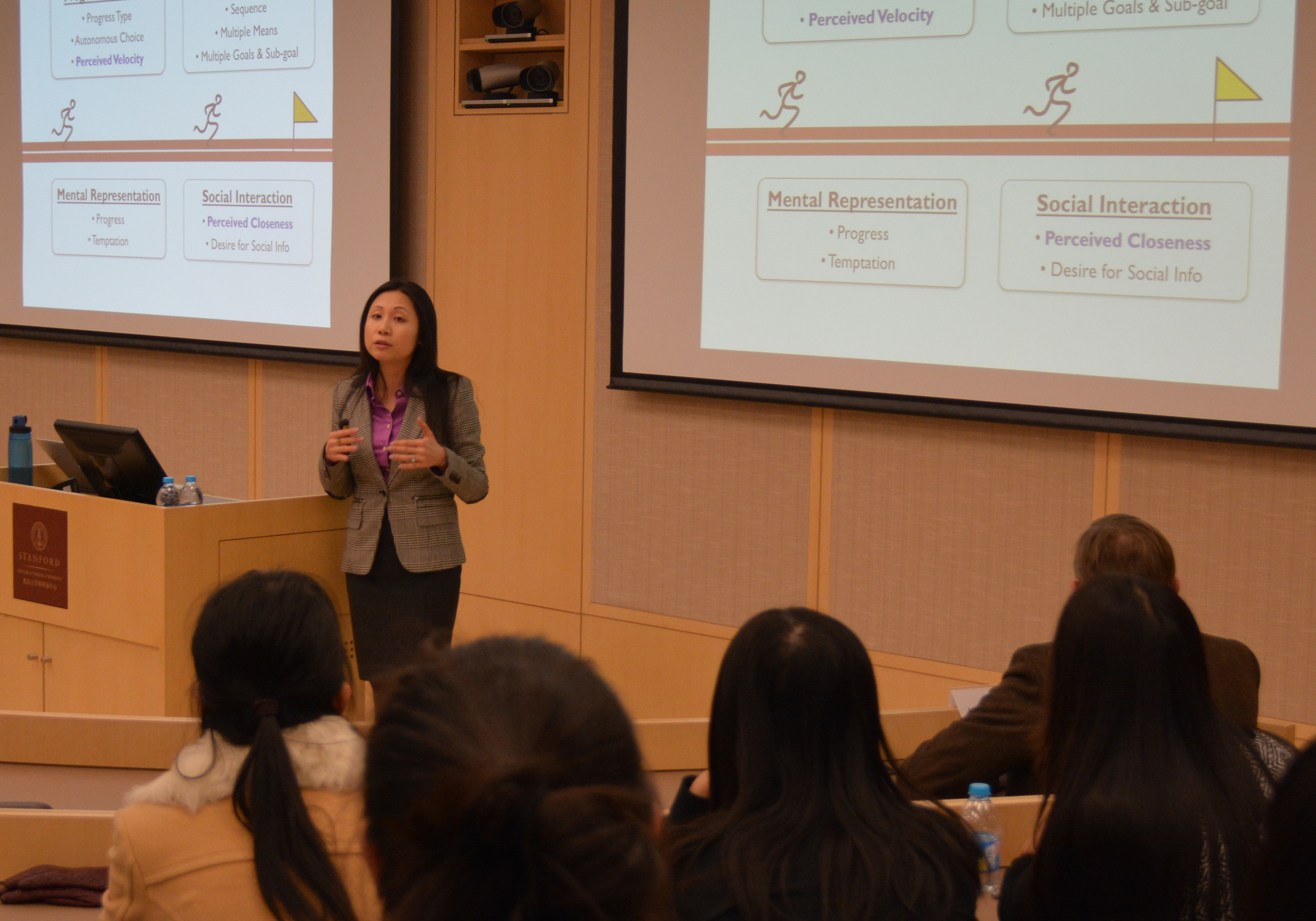SCPKU faculty fellow focuses on consumer motivation
SCPKU faculty fellow focuses on consumer motivation

Lili Li, Program Coordinator at SCPKU, spoke with Graduate School of Business Assistant Professor Szu-Chi Huang about her research and the contributions SCPKU made to her research in China.
Q: How did your interest in consumer behavior and motivation develop?
Szu-Chi Huang: After receiving my undergraduate degrees in Business and in Financial Law from National Taiwan University, I pursued a career in advertising. While I enjoyed early success in the advertising industry, I found many managerial decisions puzzling. There are many things we don't know about consumers, such as what motivates them to make a purchase, to pursue a goal, to make donations etc. Therefore, after a few years working in the industry, I decided to pursue a PhD degree and conduct research to answer my questions related to consumer behavior and motivation.
Q: Could you give us a brief introduction to your research on “motivation in different stages of goal pursuit”?
Szu-Chi Huang: Through various projects, my collaborators and I examine the changes in the determinants of consumer motivation in different stages of goal pursuit and their impact on consumers' behaviors. When people first begin to pursue a goal, they are less certain about how to approach the goal and whether they can even attain the goal; however, after they have made a significant amount of progress and are getting near the end point of the pursuit, these uncertainties are alleviated, and they focus more on reducing the remaining discrepancy to attain the goal in a timely manner. Because of this switch in people's concerns during the course of goal pursuit, people are in turn motivated by different types of feedback and interact differently as they move from early stages to later stages of the pursuit.
Q: How does understanding motivation change help the motivators and consumers?
Szu-Chi Huang: Our findings provide valuable insights for marketers and organizations that aim to motivate consumers. By choosing the appropriate goal structure for consumers, providing relevant feedback that answers their concerns at the moment, and implementing relevant social infrastructures, organizations can continue to motivate consumers as they advance across various stages of goal pursuit.
Q: In what field/areas do you anticipate seeing the most impact from your research?
Szu-Chi Huang: Our work has important implications for rewards programs and loyalty programs, pro-social events (donation drives, fundraising), and joint goal pursuit programs such as weight-loss programs and smoke-cessation programs.
Q: Describe your research and its connection to China?
Szu-Chi Huang: My research focuses on what motivates people to pursue their goals. I conducted field study in a Chinese dining hall to capture people's food consumption behaviors. I've also collected charity data from China. We found that what motivates people from different cultures may be different -- while Chinese people may be more motivated by temporal impact such as leaving a legacy, US donors are more motivated by scale-based impact. In addition, we suspect that they are motivated to eat different types of "healthy" food, as defined by culture; we are still analyzing the data for this part.
Q: Why did you decide to apply for an SCPKU Faculty Fellowship?
Szu-Chi Huang: I wanted to collect data in China, and also start building collaborative relationships with scholars in China.

Professor Huang's presentation at SCPKU (Photo courtesy of Lili Li)
Q: How valuable was SCPKU's team in supporting your fellowship at SCPKU?
Szu-Chi Huang: Extremely valuable - they provided a nice office equipped with great IT as well as research and staff supports. Also, I had the opportunity to interact with faculty from other departments for collaborations.
Q: What were your fellowship objectives and were they met?
Szu-Chi Huang: My fellowship objectives were to conduct research and collaborate with scholars in China -- they are all successfully realized. SCPKU helped me achieve my objectives by providing facilities and support, but also giving me the flexibility to visit other departments (e.g., the management school) and work with the scholars there as well as in other schools.
Q: What did you learn during your stay and what were the most interesting experiences you had?
Szu-Chi Huang: My stay was wonderful. Chinese scholars are extremely productive and have great connections with the industry for field data. Also, the business environment in China is very different from the US -- it has its own infrastructure and culture. I would encourage my students to visit China and observe these differences themselves. This experience also inspired me to start developing a course that could capture and communicate these important insights and differences.
Q: List at least THREE words that come to mind which best describe your experience at SCPKU.
Szu-Chi Huang: Unique, creative, productive.
Q: Any future plans in China?
Szu-Chi Huang: I'd like to visit again in summer as well as next year, to further cultivate the research relationships I've built during this trip.
